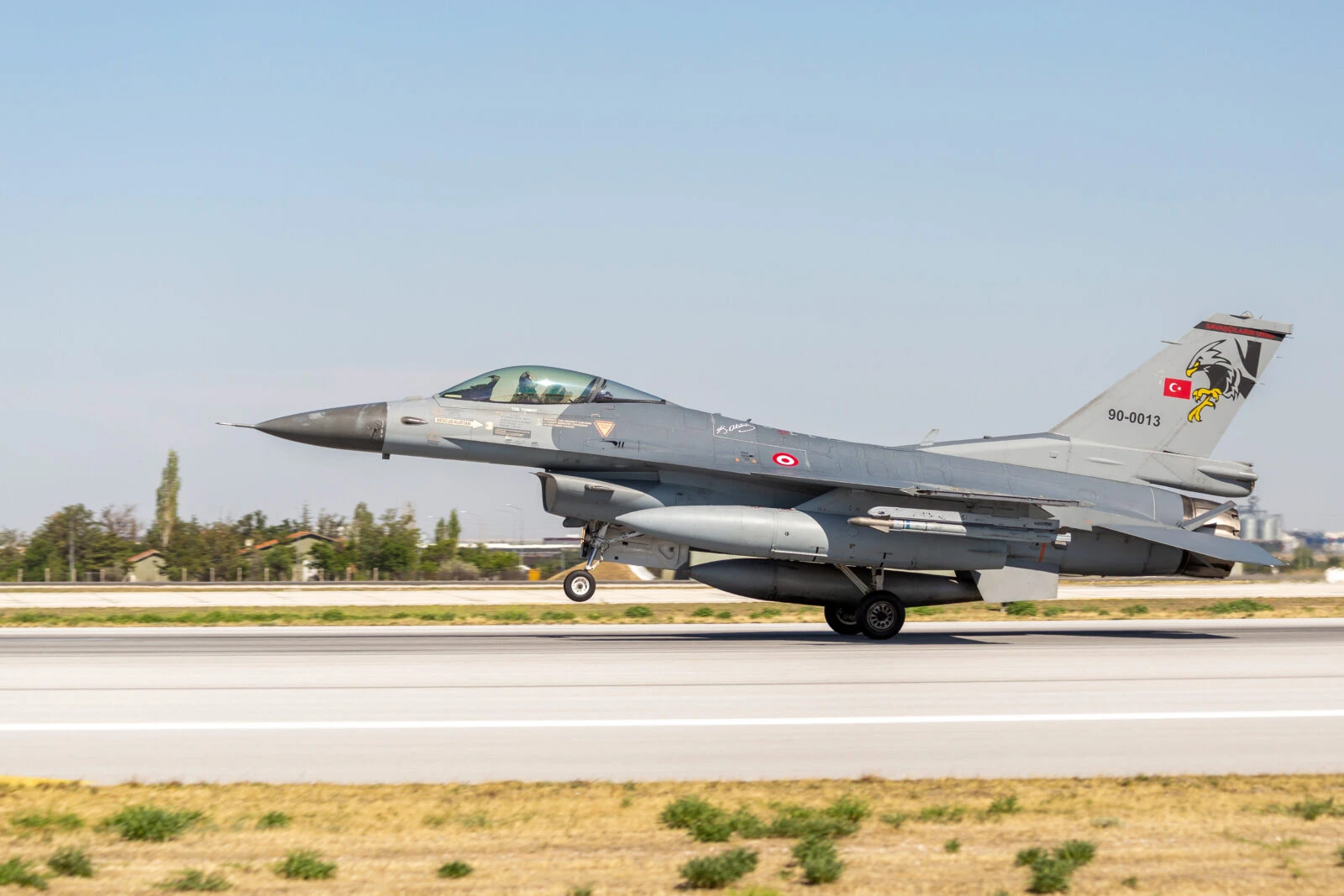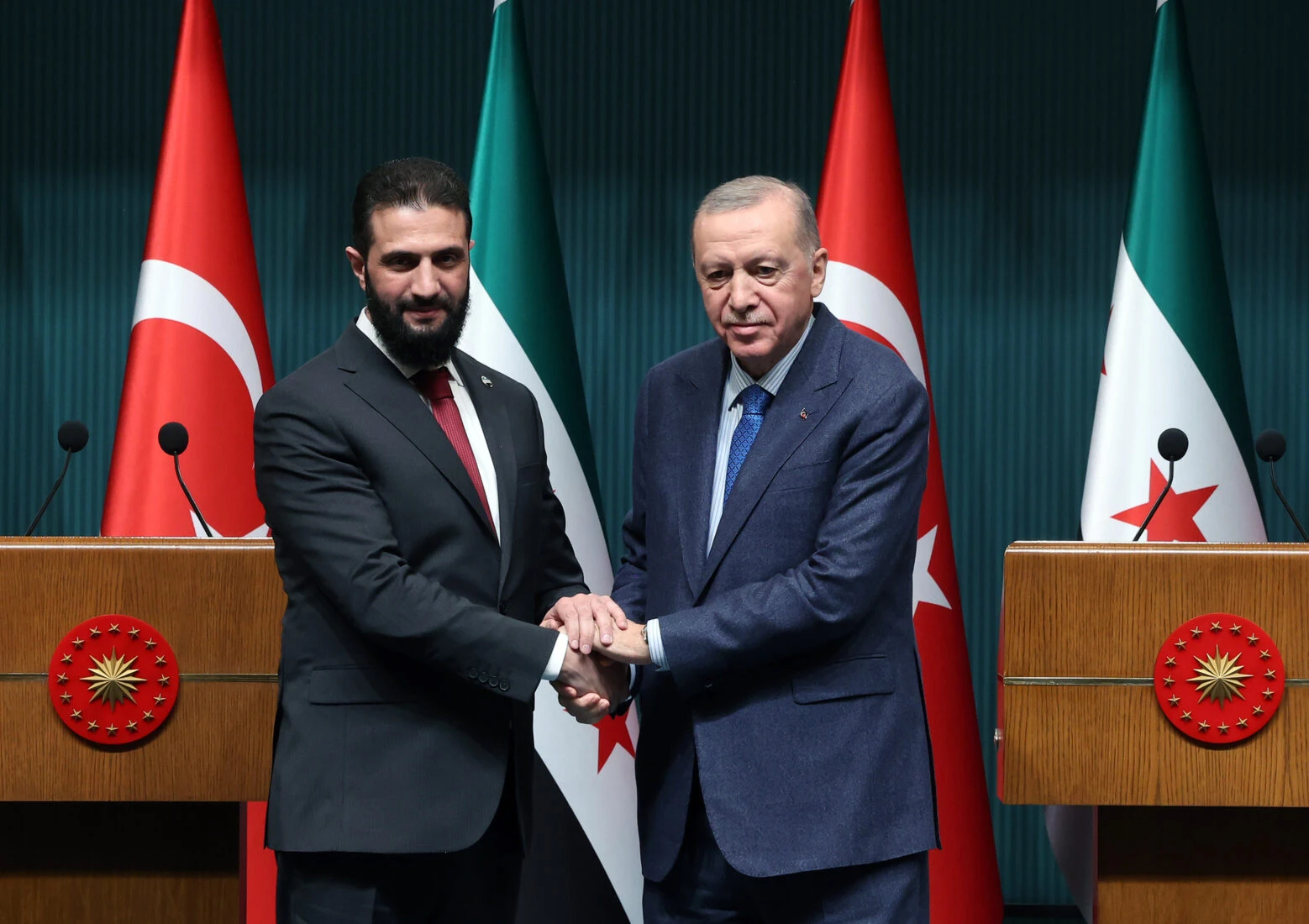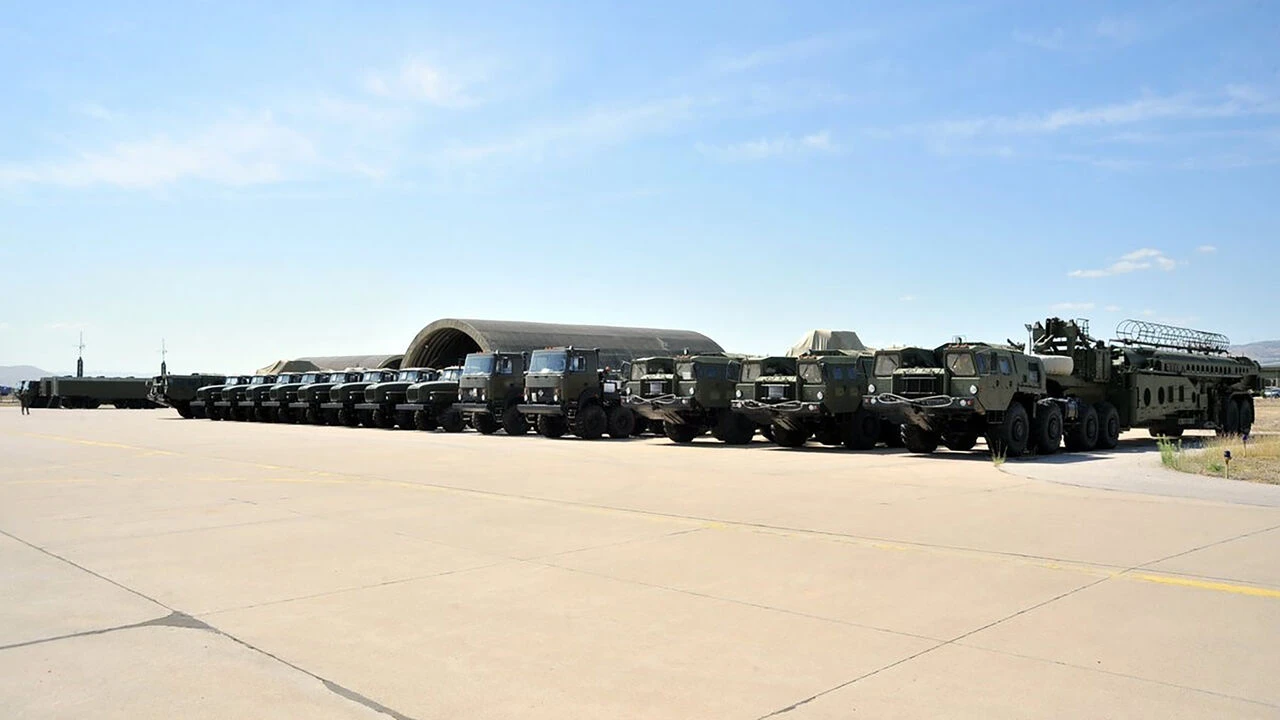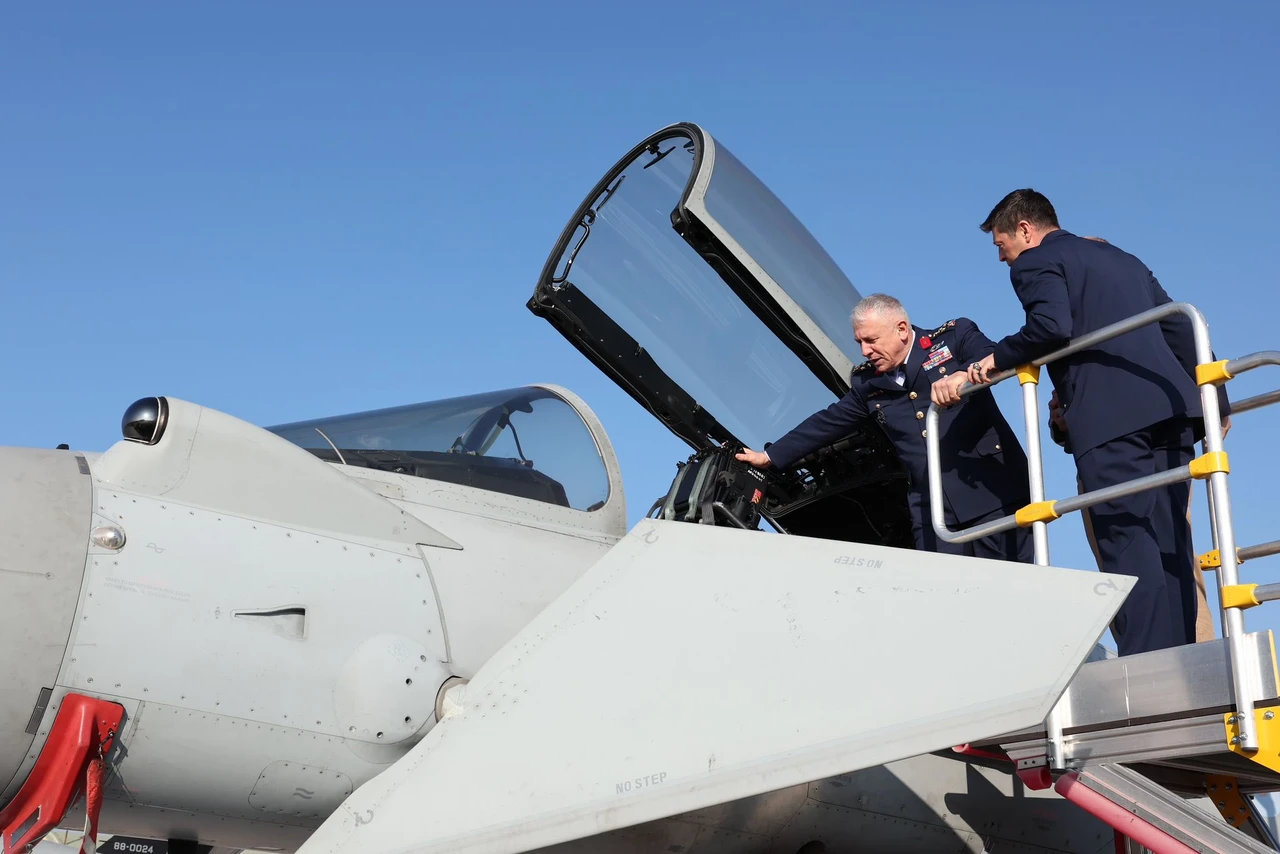Former Israeli presidential adviser worried about Türkiye-Syria rapprochement
 A photo shows the flag of Türkiye and flag of the Syrian Arab Republic prior to a press conference by the Turkish president and Syrian interim president, following their meeting at the Presidential Palace in Ankara, on Febuary 4, 2025 (AFP Photo)
A photo shows the flag of Türkiye and flag of the Syrian Arab Republic prior to a press conference by the Turkish president and Syrian interim president, following their meeting at the Presidential Palace in Ankara, on Febuary 4, 2025 (AFP Photo)
Jonathan Adiri, former adviser to late Israeli President Shimon Peres, has expressed alarm over a potential rapprochement between Türkiye and Syria, warning it could pose a greater threat to Israel than Iran.
“Israel must initiate a decisive move to prevent the Israel-Türkiye war,” Adiri says.
Writing in Yedioth Ahronoth, Adiri emphasized Ankara’s growing geopolitical footprint and urged Israeli policymakers to take preemptive steps to avoid future military conflict.
He described Türkiye as a “dynamic regional power” with significant influence in both Europe and the Middle East, noting that unlike Iran, Türkiye maintains close ties with the West and holds NATO membership.

Call for strategic alliances to avoid future conflict
Adiri referenced reports suggesting that Ankara may be nearing a defense agreement with Damascus.
He argued that Israel must adopt a proactive strategy by building new strategic alliances to counterbalance Türkiye’s expanding influence and prevent potential military tensions.
According to Adiri, Israel should consider forming a new regional coalition with Sunni-majority Arab nations under U.S. leadership, and strengthen existing military, diplomatic, and energy cooperation with Greece and the Greek Cypriot administration.
Türkiye’s expanding geopolitical role
Highlighting Türkiye’s broadening influence, Adiri noted that Ankara could play a significant role in reshaping the region, particularly as Iranian and Russian sway in Syria diminishes.
He cautioned that a Türkiye-Syria alliance could grant Ankara military basing rights in Syrian territory, which he said may constitute a larger threat to Israel than Iranian deployments.
“Türkiye is not a pariah state,” Adiri wrote, emphasizing that it maintains strong ties with Western institutions, holds the second-largest military in NATO, and is increasingly asserting its presence across multiple theaters, from the Mediterranean to the Caucasus.

Energy and defense capabilities bolster Ankara’s position
Adiri further pointed to Türkiye’s control over key natural gas pipelines feeding Europe, calling it a “central player in European energy security.”
He also highlighted the rapid growth of Ankara’s defense industry, stating that defense exports have quadrupled in the last decade to exceed $7 billion, with 70% of production now domestically sourced.
Foreign Minister Hakan Fidan, whom Adiri described as a key architect of Türkiye’s strategic vision, was credited with pushing initiatives that include expanding military bases in Syria, increasing naval presence in the Mediterranean, and balancing ties between NATO and Russia.



